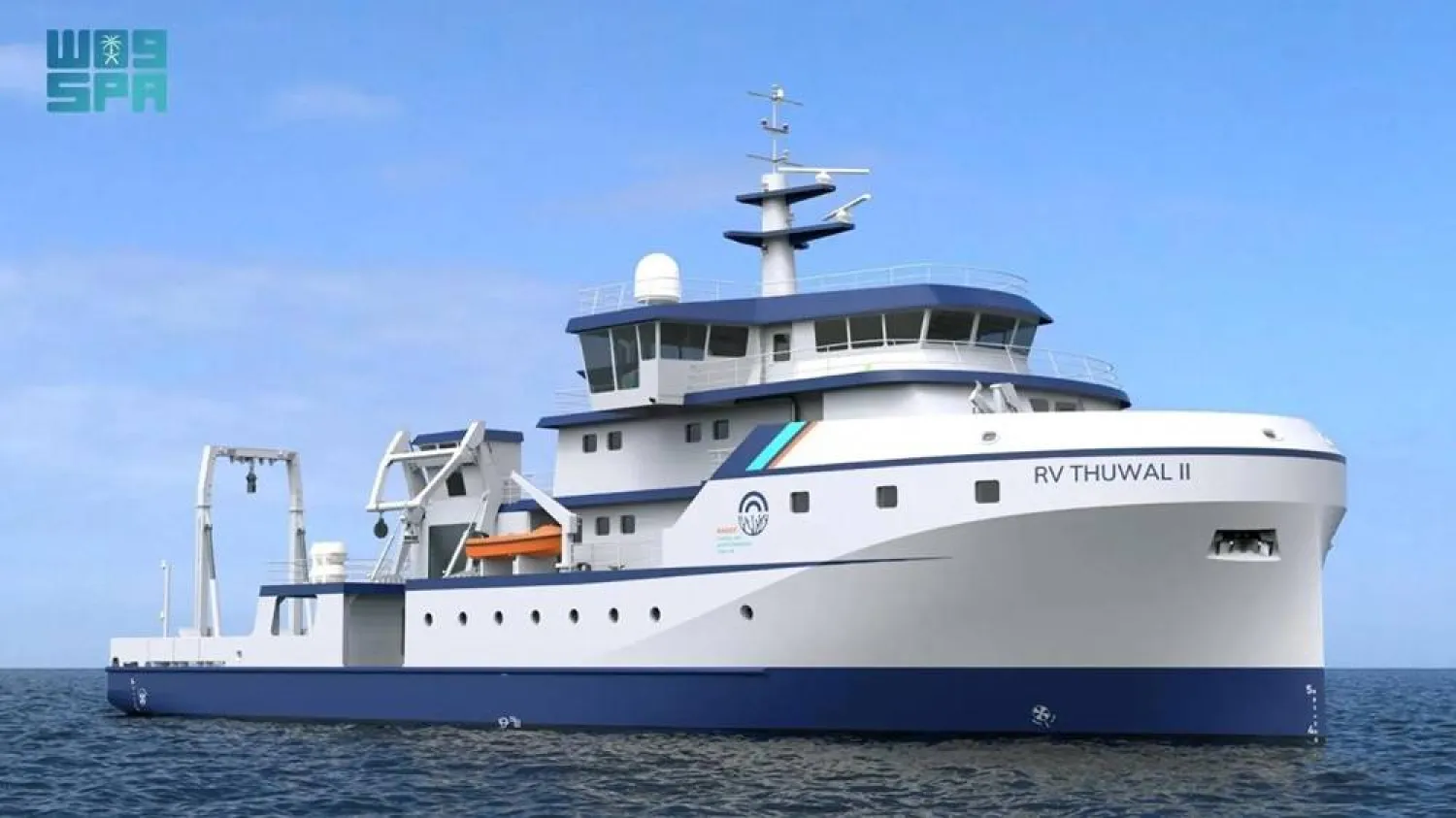The King Abdullah University of Science and Technology (KAUST) announced on Thursday the construction of Saudi Arabia's first regional research vessel, Thuwal II.
The vessel will be the flagship of Saudi Arabia's research fleet, supporting all marine research missions, including those undertaken by mega projects and ministries.
The vessel will be built by Freire Shipyards, a company with over 100 years of shipbuilding experience, at its shipyard in Vigo, Spain.
The vessel, expected to be completed in 2026, will provide full access to the Red Sea, including coastal waters and deep-sea areas. It will have the capability to explore all major scientific interests in the Red Sea, such as coral reefs, marine life, and geological formations.
This will boost research in the Kingdom, attract more international partners, encourage greater scientific collaboration, and strengthen Saudi Arabia's position as a global leader in marine research, given the significant interest in the Red Sea among scientific communities.
The Thuwal II research vessel will be 50 meters long, 12.8 meters wide, and have a draft depth of 3.6 meters. It is designed to operate for 30 years and features a modular design that allows for various experimental laboratories compatible with current and future marine technologies to explore the Red Sea.
The vessel can also incorporate new green propulsion technologies to reduce its carbon footprint over time.
In addition to its primary function as a research vessel, Thuwal II will be capable of supporting national emergency responses, such as oil spills, and maritime and aviation incidents in the Red Sea.
The vessel will accommodate 30 people, with 12 expected to be crew members, leaving the remaining spaces open for researchers.
It will be capable of exploring the deepest points of the Red Sea and deploying a variety of remotely operated vehicles and autonomous underwater submarines to conduct visual and acoustic surveys, collect water samples, and map the seabed.
The research vessel was designed by Glosten, a US-based company, which will continue to provide off-site engineering support during construction. Maritime Survey International, an Australian company, has been selected to represent KAUST on-site, overseeing daily construction activities.
The planning for Thuwal II has involved dozens of stakeholders in the Kingdom, including mega projects, ministries, and several universities with expertise in oceanography and marine operations.









